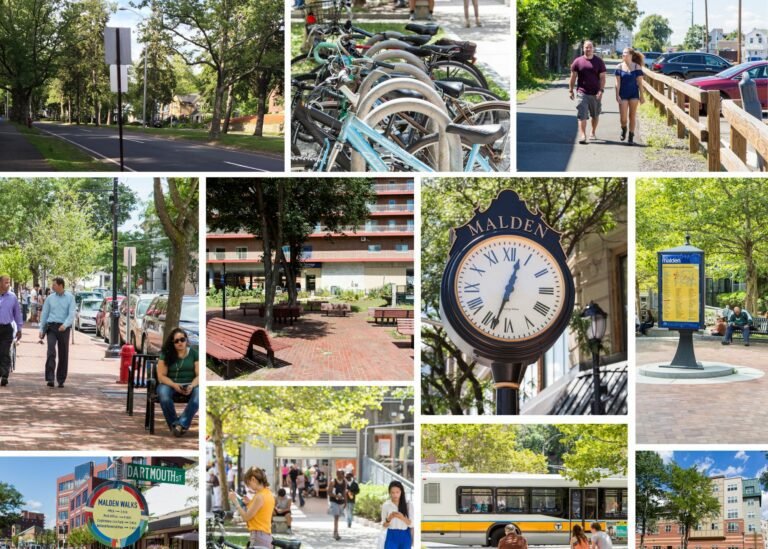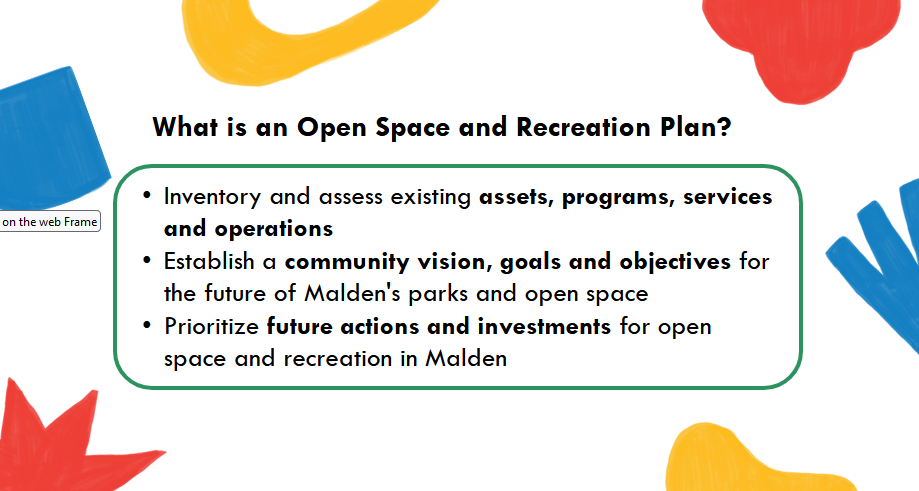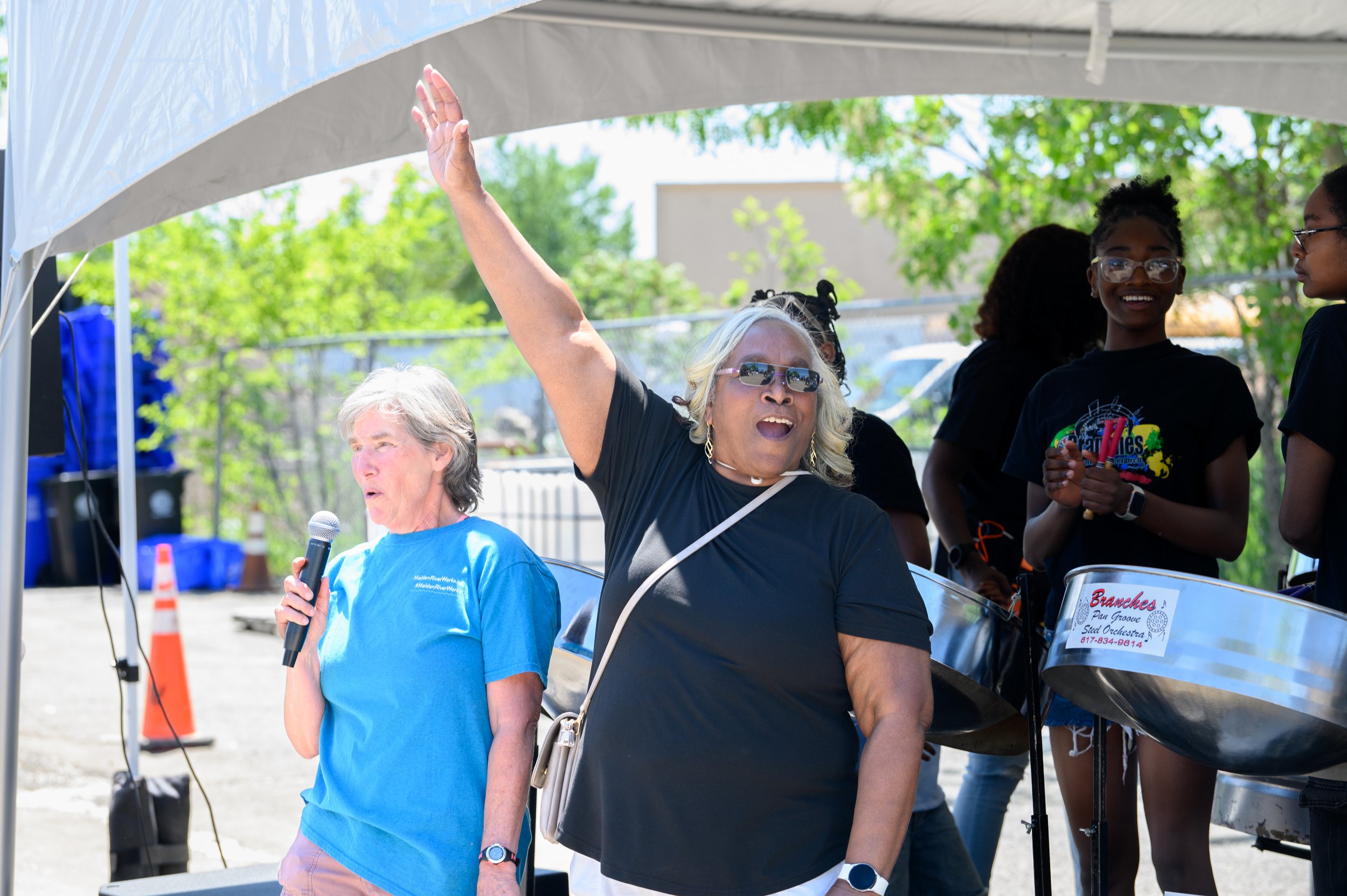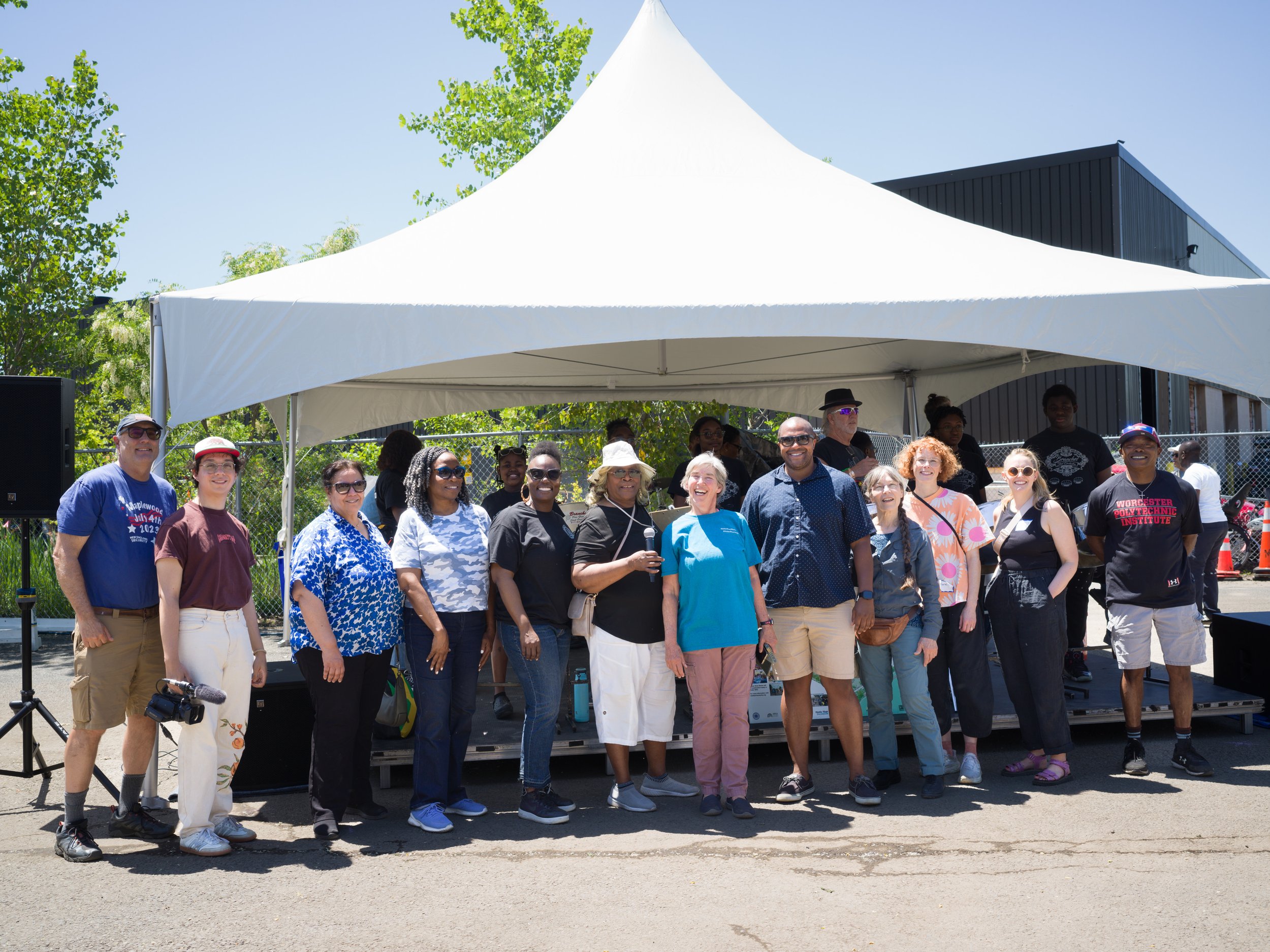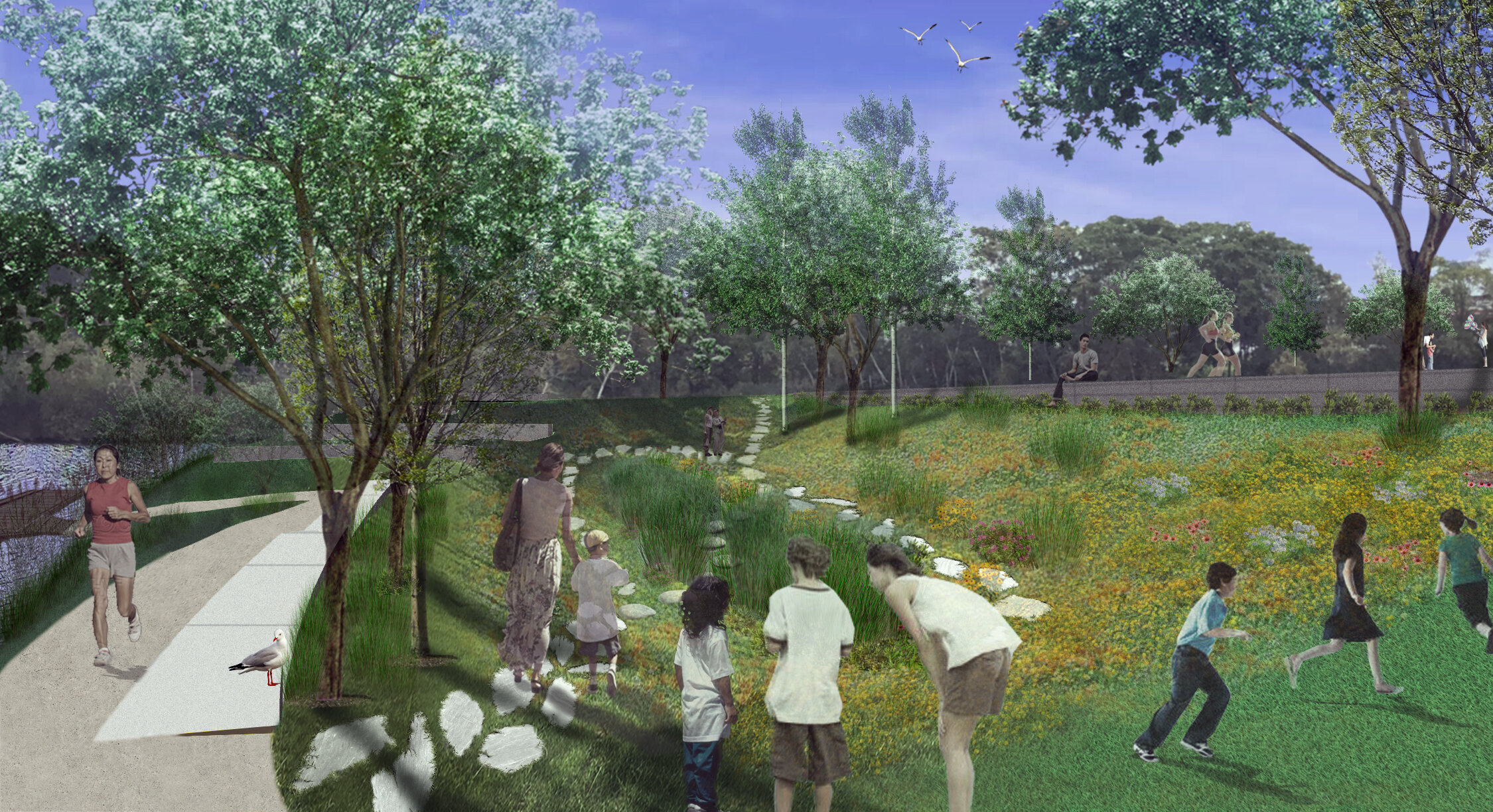
A Climate Resilient Park for All
Overview
The objective of the Malden River Works project is to bring together a new coalition of community leaders of color, environmental advocates, and government stakeholders in action to achieve a common goal: to create a climate resilient waterfront park for all on the Malden River.
Recent planning studies (the 2018 Commercial Street Corridor Framework Plan initiated by the City of Malden and the Malden Redevelopment Authority (MRA), the 2018 Malden River Greenway Plan initiated by the MyRWA, and the 2017 Open Space and Recreation Plan initiated by the City of Malden) have documented widespread interest in the river as a future civic asset from Malden residents and local stakeholders. The Malden River Greenway Plan, in particular, outlines a contiguous greenway network connecting riverfront open space in Malden, Medford, and Everett. The Malden River Works project builds on these planning efforts through the design of the first public open space on the river in Malden, Massachusetts.
In 2019, Malden River Works was awarded the first ever Leventhal City Prize from MIT’s Leventhal Center for Advanced Urbanism, focused on supporting innovative urban design and planning approaches for equitable resilience.
The project and its process, led by residents of color, is intended to serve as a model for equitable and resilient waterfront development in Malden.
News & Progress
The Site
The Malden River Works project site at 356 Commercial Street is a five-acre riverfront parcel that is home to Malden’s Department of Public Works (DPW), and owned by the Malden Redevelopment Authority (MRA). The MRA and the City have agreed to consider the introduction of public open space along the river’s edge as part of this project.
DPW site, with current yard and boat house. 356 Commercial Street, Malden, MA. Aerial from Google.
The transformation of the DPW site into a civic waterfront space is envisioned as a two-part project, involving the redesign of the DPW operations, and the new design of the waterfront park.
The first part involves working with the DPW team to study and redesign their site operations for climate change preparedness, improved stormwater management, and spatial efficiency to make room for the new waterfront park. The DPW is a second responder in Malden’s disaster recovery system, responsible for drainage repair, tree and debris removal, and waste management as a result of climate events like heavy storms.
Malden will lead by example in the second part, transforming the only city-owned parcel along the Malden River into a climate-resilient greenway park. The park will create quality public access to the river for all, while building resilience from climate impacts of inland and coastal flooding, and urban heat island effect.
Proposed Design
This project aims to create better climate change preparedness, and a vibrant, public riverfront park that boosts social resilience in Malden, Massachusetts.
The overall design of the project addresses climate mitigation and adaptation, while also producing the co-benefits of boosting social resiliency. The park design seeks to actively invite visitors of all backgrounds, ages, languages, and socioeconomic statuses. The diverse cultures of Malden will be represented on the site through art on the DPW walls and signage, cultural events, and outdoor classes. Bioretention and riparian areas will be complemented by signage in various languages to allow visitors to learn about the natural environment or history of Malden. Additionally, the flexibility of spaces and the ADA-compliant design will welcome people of all age groups and abilities.
Full details, including proposed site plan organization and cost estimates are available in the Concept Design Report.
Proposed Park: This axonometric view shows details of the park including the flexible lawn surrounded by trees for shade, the elevated greenway path that is intended to connect to the north and south in the future, the boat house, the accessible pathway to the river and the boat launch, and the bioretention pond for flood control, water quality, and restoring a more natural ecosystem along the river.
River and Open Space Amenities Map: The amenities and features proposed for the Malden River Works project were considered within the context of existing and proposed open spaces on and around the Malden River.
Shaded Lawn: This view is taken from the south side of the lawn area, to show the scale of the space and flexibility of use, shading from trees at mid-day, and the boat house and restrooms in the distance. Additionally, on the right side, the main greenway path and river are visible.
Bioretention Area: This is a view of the bioretention area and the accessible pathway down to the river. This area shows host local plant species, detain stormwater, and treat runoff from the rest of the site after a rainfall.
Paths to the River: This view is taken where the three paths converge, with the boat house to the right. It is intended to show how the main greenway path and lawn are elevated, while the boat ramp and accessible path slope toward the river and support local plant species and wildlife.
Commercial Street Entrance: This perspective, viewed from Commercial Street at the current entrance of the DPW, shows a more welcoming and identifiable entrance to the park, along with a future mural on the DPW walls.
Banner Image: Rendering of Proposed Park



